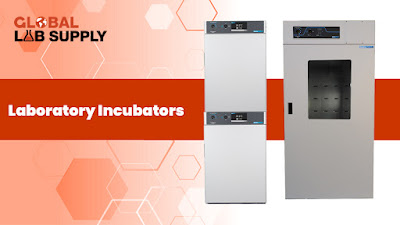A laboratory incubator is a crucial equipment in any laboratory. They provide a controlled, contaminant-free environment for safe, reliable work with cell and tissue cultures by regulating conditions such as temperature, humidity, and CO2.
What is a laboratory incubator?
It is a heated, insulated box used to grow and sustain microbiological or cell cultures. The laboratory incubator does this by maintaining optimal temperature, humidity, and gaseous content of the atmosphere inside. The microbiological incubators differs in size from compact table-top units to large systems, the size of a cupboard.
The simplest incubators offer only a little more than being temperature-controlled ovens, that are capable of reaching temperatures of 60 to 65°C, but generally used at about 36 to 37°C. A large amount of modern incubators can also generate refrigerated temperatures, and control humidity and CO2 levels.
What is a laboratory incubator used for?
The primary function of an incubator is to endow a controlled, contaminant-free environment for safe and reliable work with cell and tissue cultures by regulating conditions such as temperature, humidity, and CO2. Laboratory incubators are fundamental for the growth and storage of bacterial cultures, cell and tissue culture, biochemical and haematological studies, pharmaceutical work and food analysis.
Incubators are often deployed in modern research laboratories to preserve a stable atmosphere for processes such as growing cells and microbiological cultures and incubating antibodies and cells for fluorescence microscopy.
A common misconception is that ovens can be used in place of incubators because they both produce heat. However, they are not the same, as an oven produces temperatures typically ranging from 93.3 to 316 degrees Celsius, while an incubator typically ranges from 15.6 to 48.9 degrees Celsius. Therefore, an oven cannot be used as an incubator because most ovens will not have a low enough temperature that is suitable for using as an incubator.
Laboratory Incubators are used for growing cell cultures, reproduction of germ colonies with subsequent germ count in the food industry, reproduction of germ colonies and subsequent determination of biochemical oxygen demand in wastewater monitoring, reproduction of microorganisms such as bacteria, fungi, yeast or viruses; breeding of insects and hatching of eggs in zoology, controlled sample storage and in growing of crystals/protein crystals.


